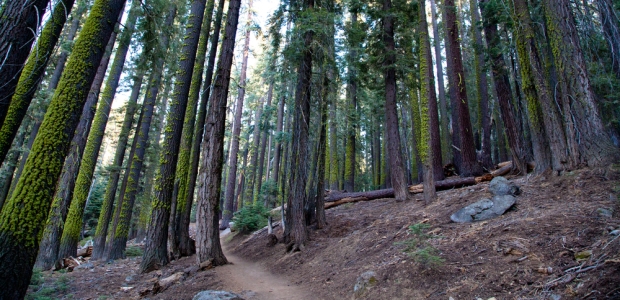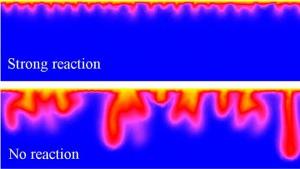
Landowners will retain ownership of their land and will not be restricted from using it for activities such as timber harvest, hunting, fishing, and hiking; the grants will protect more than 28,285 acres of forests from development.
A mining engineer and geologist says it’s time to economically value the greenhouse gas-trapping potential of mine waste and start making money from it.
According to research from the University of Gothenburg, Sweden, emissions of fossil carbon and the resulting increase in temperature could prevent the earth from having a future ice age.
A research team has discovered that a source of carbon emissions could help scientists understand past and future global change.
Professors and researchers are studying how fertilization of forests can increase productivity and carbon sequestration as part of the Pine Integrated Network Education, Mitigation and Adaptation Project (PineMap).
A rapid increase in the frequency of icebergs pounding the shallow seafloor around the West Antarctic Peninsula — as a result of shrinking winter sea ice — has caused the life expectancy of a tiny marine creature to halve over the last 12 years.
Capturing CO2 from power stations and storing it deep underground carries no significant threat to human health, despite recently voiced fears that it might, a study has shown.
Details are now emerging about a microbial metabolic pathway that helps solve the mystery of how certain bacteria capture carbon in the dark ocean, enabling a better understanding of what happens to the carbon that is fixed in the oceans every year.
The Ohio State researchers argue that in this case, as forests age, they get rejuvenated with younger individuals of different species – a more-complex and -diverse community will be replacing the old guard.
Coccolithophores, a certain group of algae, form thinner calcite skeletons when the pH value in the ocean drops. In marine ecosystems, changes in the degree of calcification are much more pronounced than presumed to date based on laboratory tests. These changes have an impact on the global carbon balance since the examined microalgae influence the carbon dioxide exchange between ocean and atmosphere.
In a test project, researchers plan to inject some 20,000 tons of carbon dioxide into a coalbed methane field in southwest Virginia, at a site that is not suitable for underground mining purposes.
As one of the planet’s largest single carbon absorbers, the ocean takes up roughly one-third of all human carbon emissions, reducing atmospheric carbon dioxide and its associated global changes.But whether the ocean can continue mopping up human-produced carbon at the same rate is still up in the air.
Huge Arizona fires making headlines around the globe have destroyed dozens of structures and burned nearly three-quarters of a million acres. They also are contributing to global warming, scientists say, by upsetting the carbon balance while they are burning and for years to come.
Forests in many regions are becoming larger carbon sinks thanks to higher density, U.S. and European researchers say in a new report.
Two carbon forestry projects have reached verification status against the climate, community and biodiversity (CCB) standards, meaning that the projects have been implemented using best practices for community engagement and have generated benefits for local communities and biodiversity as well as for the climate.
The data are expected to provide a baseline for ongoing carbon monitoring and research and serve as a useful resource for managing the greenhouse gas carbon dioxide.
The American Physical Society has released a new assessment, titled “Direct Air Capture of CO2 with Chemicals,” to better inform the scientific community on the technical aspects of removing carbon dioxide from the atmosphere.

The presence of even a simple chemical reaction can delay or prevent the spreading of stored carbon dioxide in underground aquifers, new research from the University of Cambridge has revealed.
A pilot program will test the ability of proprietary enzyme technologies to reduce the environmental impact of industrial byproducts.
MBD Energy, owner of three CO2-to-energy projects, will pilot the extraction unit.